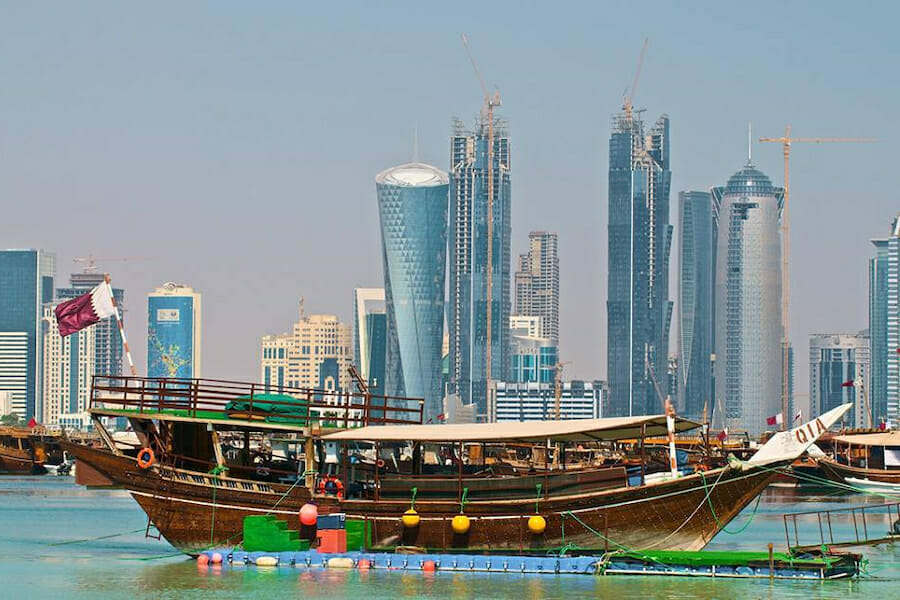
Cyber Diplomacy in Qatar – A Virtue of Necessity?
Delineating the term cyber diplomacy is not without debate. Sometimes used equivalently to digital diplomacy, which, expanding on Public Diplomacy 2.0, rather outlines the use of digital means in exercising diplomacy. Cyber diplomacy instead, is better described as employing means of diplomacy to respond to challenges in cyberspace. In this context, it is the small, yet influential Gulf nation of Qatar that continues to make considerable strives.
Driving an ambitious soft power strategy already since the mid-nineties, Qatar did not limit itself to investing its gas-wealth in its own media, infrastructure, tourism and business sectors to compel foreign direct investment and advocacy. It also pursued underpinning its diplomacy early on through a diversity of investments abroad, and by profiling itself as an important player in areas of global relevance. Multilateral exchange in the interest of cybersecurity was particularly important.
Drawing worldwide attention to the risks attached to today’s digital environment, the rupture between Doha and four of its neighboring capitals saw Qatar at the receiving end of a wide-scale cyberattack and disinformation campaign. In June 2017, hackers uploaded fabricated information onto the Qatar News Agency website, bots then multiplied an avalanche of incendiary content on social media, all of which led up to today’s incessant Gulf stalemate. Parallel to the fierce controversy around foreign meddling in the 2016 U.S. presidential election, the Gulf crisis not only placed Qatar at the center of a global cybersecurity debate involving technology experts as well as political, security and policy analysts. It also set a globally visible precedent for a nation-state’s capability to adequately respond to such an intrusion.
By understanding the situation as an opportunity, Doha has made a virtue of necessity. The country has since accelerated its cyber diplomacy efforts. In particular, by not only focusing on cyberdefense and cyberwarfare, Doha has also provided a platform for multilateral dialogue on how cyber ethics and cyber peace will have to be shaped in the future.
Qatar was not new to this. It had made continued investments in designing an ecosystem to incubate ideas for safeguarding cyberspace long before the Gulf spat. Leveling up its digital environment and technological know-how, enhancing its capabilities, and developing transnational partnerships have been key components of the country’s cybersecurity framework from the outset. On the verge of hosting the 2022 World Cup, Doha has been very conscious of the need for preparedness against virtual threats. Seeking to protect its networks and population, of which more than eighty percent are foreigners, the country initiated a number of initiatives and policies, including its National Cyber Security Strategy launched in 2014.
Long-term instruments for putting national cybersecurity strategies into play were provided by the Cyber Crimes Investigation Center, the Cybersecurity Coordination Office, as well as the Qatar Computer Emergency Response Team (Q-CERT), an official body mandated to identify and prevent cyberattacks against the government and other critical sectors. The Banking Supervision Rules initiated by the Qatar Central Bank in coordination with Q-CERT have been put in place to protect the country’s financial institutions. Qatar’s Ministry of Transport and Telecommunications, conduct annual drills, unique to the country, engaging the public and private institutions in an array of technical and educational activities, raising readiness and awareness on how to manage cyberattacks.
In October 2019, Qatar hosted the second edition of the Global Security Forum. Organized by the Soufan Center, a security-focused strategy center in New York, the conference convened government officials and experts from more than fifty countries to participate in a variety of sessions, shedding light on the security challenges posed by the proliferation of modern information warfare in today’s digitally interconnected societies.
Qatar, in particular, has also recognized the significance of education, science and research in enhancing cybersecurity, solidifying its position as a hub for international cybersecurity capacity. Carnegie Mellon University in Qatar, Hamad Bin Khalifa University (HBKU) and Qatar University all offer specialized study and research programs in computing and cybersecurity. HBKU’s Qatar Computing Research Institute (QCRI) is dedicated to research tackling local and global cybersecurity challenges, there, international and local experts, as well as, researchers and students work hand in hand. The institute’s Qatar Center for Artificial Intelligence collaborates with international partners, such as the Massachusetts Institute of Technology and Boeing to find solutions to technology challenges, including cybersecurity. Integrating the support of international partners, including Sofia University and the University of Bologna, QCRI’s “Tanbih” project promotes media literacy and seeks to limit the societal effects of fake news by providing an online news aggregator that uncovers stance, bias and propaganda techniques in media coverage. “Tanbih” is the Arabic word for “warning.”
In an exhibition of industry-academia collaboration and public awareness endeavor, more than a hundred and thirty students, researchers, and experts accounting for thirty nationalities, came to Doha to take part in the Qatar International Cybersecurity Contest in October 2019. Participants sought solutions to challenges in five major areas, including measures to secure genetic data, hacking prevention, fake news detection, and competitions revolving around the ethical and legal aspects of activities in cyberspace.
The event explored how actors in academia and the private sector, both locally and internationally can collaborate to find solutions to the most pressing issues governments face in the cybersecurity arena, and how such collaborations could be emulated elsewhere in the world.
Cross-border partnerships have also played a key role in the furthering of cyber diplomacy as friendly nations exchange knowledge, expertise and assist one another in times of crisis. Following the cyberattack that triggered the Gulf Crisis, Qatar developed several bilateral partnerships to enhance its cybersecurity capabilities and share knowledge internationally. A joint initiative, “Academia-Industry Cooperation on Cyber Security,” dubbed “science diplomacy” between the Qatar National Research Fund and Turkey’s Scientific and Technological Research Council (TÜBİTAK), was brought to life in 2017, aiming to develop innovative responses to prevalent cybersecurity needs.
In the wake of the 2017 cyberattack that sparked an unprecedented regional crisis, Qatar has managed to present itself as a calm and level-headed actor on the diplomatic stage. While there cannot be any doubt of the country’s economic clout, Doha’s remarkably thoughtful response and cyber diplomacy strategy may indeed have facilitated additional transnational partnerships with leading international institutions that are vital to the overarching cybersecurity debate. Having positioned itself at the forefront of this issue and with a growingly digitized and complex threat environment, that today poses a risk to all countries, it is thinkable that a leadership position in cybersecurity may as well turn out to be one of Qatar’s strongest soft power assets, yet.
This article was originally posted in USC’s Public Diplomacy Magazine.


